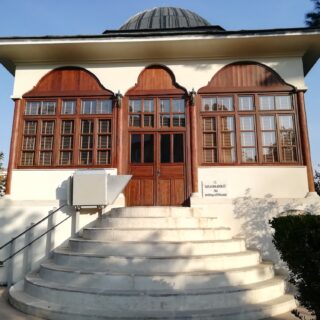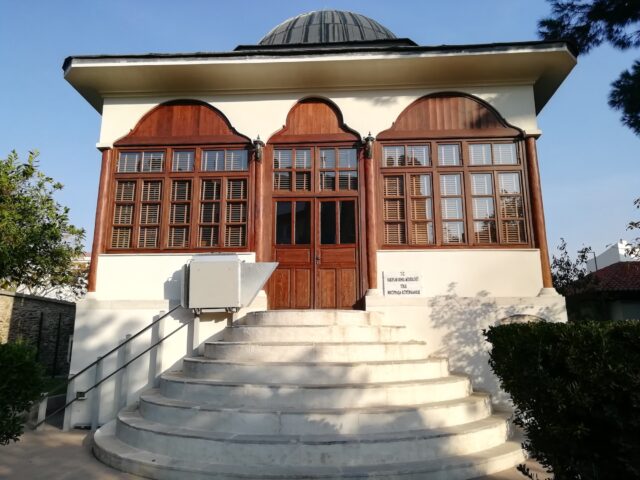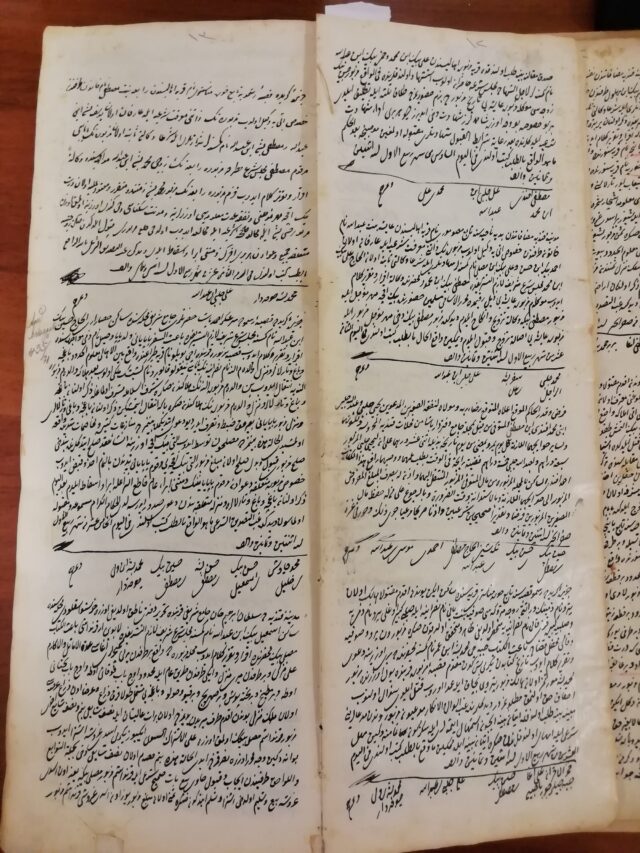Profile

- Research Subject
・Maritime Regime in Ottoman-European relations
・Memoirs of Ottoman-Musulim captives
・”Magic” in Ottoman society
- Research Fields
- History of west Asia (Ottoman and Turkish history)
- Faculty - Division / Research Group / Laboratory
- Division of Humanities / Research Group of History / Laboratory of Oriental History
- Graduate School - Division / Department / Laboratory
- Division of Humanities / Department of History / Laboratory of Oriental History
- School - Course / Laboratory
- Division of Humanities and Human Sciences / Course of History and Anthropology / Laboratory of Oriental History
- Contact
Email: hsuemori(at)let.hokudai.ac.jp
Replace “(at)” with “@” when sending email.Foreign exchange students who want to be research students (including Japanese residents) should apply for the designated period in accordance with the “Research Student Application Guidelines”. Even if you send an email directly to the staff, there is no reply.- Related Links
Lab.letters


Pre-modern Ottoman foreign relations in the Mediterranean Sea
The Ottoman Empire reigned over a vast area that spanned the Middle East, Europe, and Africa for approximately 600 years, from the end of the 13th century to the beginning of the 20th century. The Ottomans occupied an important position in the history of the world in early modern and modern times, and as can be seen in music such as Mozart’s ”Turkish March,” its existence has not been erased from the Middle East and Eastern Europe even today.
While the Ottomans waged war against other countries, it guaranteed the safety of friendly countries and their residents based on treaties. However, this raises the question of what happened when citizens of the Ottomans harmed, or, on the contrary, were attacked by people of friendly nations at sea. I am aiming to clarify the maritime order of the Ottomans by analyzing the provisions of relevant treaties and the application of treaty provisions for certain case studies.
"Betrayal" by historical documents is a pleasure of historical research
For me, there wasn’t a moment at the beginning when I decided I would study the maritime order of the Ottoman Empire. I collected a wide range of historical materials at local archives and libraries while I was studying in Turkey, and that was when I happened across my topic, while I was simply reading regardless of genre. I came across an adventure-like story of a Muslim prisoner of war shortly before I returned to Japan. It is the memoir of an Ottoman official who was kidnapped by the Sovereign Military Order of Malta, but for me it gave me the opportunity to think about the perspective of prisoners of war, an area which is difficult to see just from written historical materials.
Historical science is influenced by the state of historical materials, so it is not always possible to study a theme that you are thinking about. On the other hand, you may come across facts beyond that you expected from historical materials. It is a pleasure to do research where you can be “betrayed” every time you take a look at historical materials.
Message
As an undergraduate student, I traveled alone to Marseille when I was studying abroad in France. The Mediterranean Sea sparkled as I gazed at it from the top of a hill, and I wanted to know somehow what was on the other side of this sea. Later, with my interest held, I continued to read a range of historical materials written in Ottoman Turkish, etc., and I found an article concerning a piracy incident that occurred between the Ottoman Empire and the Republic of Venice. At that time, the topic of the Ottoman maritime order floated to the top of my mind. Now, there are many other topics that hold my interest, such as the memoirs of Muslim prisoners of war who were kidnapped by pirates and the “magic” of Ottoman society, but I discovered all of these topics through my own sensory experience and the reading of historical materials from every angle. I hope that students who have their sights set on oriental history can face the honest senses they have within themselves and move their limbs to dig up new as yet unknown historical facts.
The field of West Asian history, which is my specialty, is now treated as an independent field, but it has a history in Japan of being a field that was originally derived from and developed in oriental history. Reading comprehension of the classics is a foundation for understanding a great variety of texts, and it wasn’t uncommon for past professors who majored in West Asian history to have a background in Chinese literature. Personally, I found Chinese literature to be beyond me, but I learned a lot about methodologies for reading and analyzing historical materials from Chinese history professors, graduate students, and students in my same laboratory, and this has led me to my current research. I think that an appeal point about our laboratory is that students and graduate students of Chinese history and West Asian history can come together in one place and study and talk together about their research.




